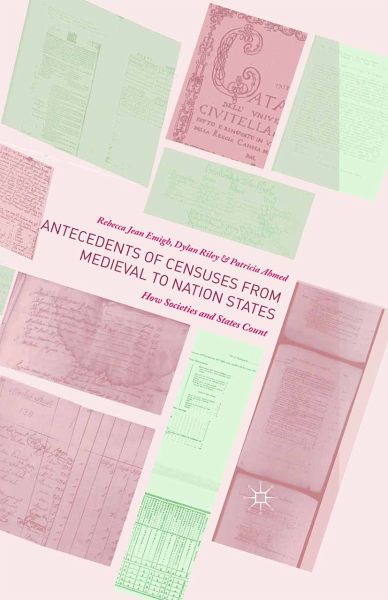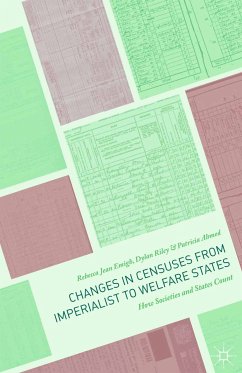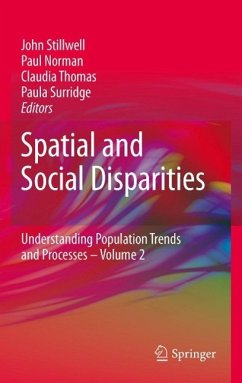
Antecedents of Censuses from Medieval to Nation States (eBook, PDF)
How Societies and States Count
Versandkostenfrei!
Sofort per Download lieferbar
40,95 €
inkl. MwSt.
Weitere Ausgaben:

PAYBACK Punkte
20 °P sammeln!
Antecedents of Censuses From Medieval to Nation States, the first of two volumes, examines the influence of social formations on censuses from the medieval period through current times. The authors argue that relative influence of states and societies is probably not linear, but depends on the actual historical configuration of the states and societies, as well as the type of population information being collected. They show how information gathering is an outcome of the interaction between states and social forces, and how social resistance to censuses has frequently circumvented their planni...
Antecedents of Censuses From Medieval to Nation States, the first of two volumes, examines the influence of social formations on censuses from the medieval period through current times. The authors argue that relative influence of states and societies is probably not linear, but depends on the actual historical configuration of the states and societies, as well as the type of population information being collected. They show how information gathering is an outcome of the interaction between states and social forces, and how social resistance to censuses has frequently circumvented their planning, prevented their implementation, and influenced their accuracy.
Dieser Download kann aus rechtlichen Gründen nur mit Rechnungsadresse in A, B, BG, CY, CZ, D, DK, EW, E, FIN, F, GR, HR, H, IRL, I, LT, L, LR, M, NL, PL, P, R, S, SLO, SK ausgeliefert werden.












